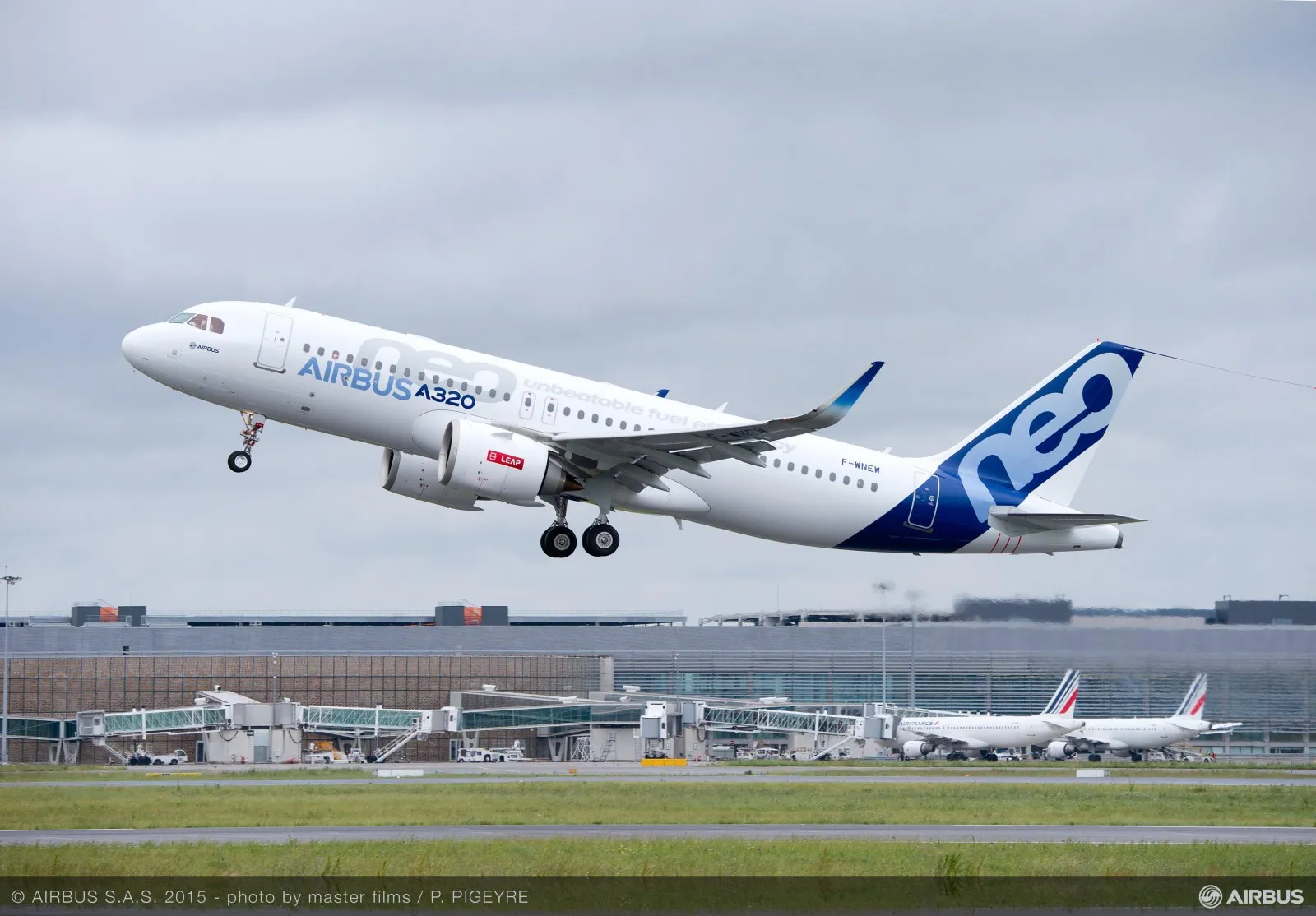
BOEING BLOW: XIAMEN AIRLINES ORDERS AIRBUS A320NEOS
Sep 22, 2022

Xiamen Airlines has made a significant decision to expand its fleet by placing an order for Airbus A320neos, marking a notable shift in its aircraft sourcing strategy. This move comes amid increasing competition in the aviation market and highlights the airline's commitment to enhancing operational efficiency and passenger comfort. The A320neo, known for its fuel efficiency and advanced technology, aligns with Xiamen Airlines' goals for sustainable growth. This order could potentially reshape the dynamics of the industry, particularly as Boeing faces challenges in securing new contracts. The decision underscores the evolving landscape of airline partnerships and aircraft preferences.
The recent announcement of "Xiamen Airlines" placing a significant order for "Airbus A320neos" has sent shockwaves through the aviation industry, particularly affecting "Boeing". This strategic move reflects a growing trend among airlines to diversify their fleets and capitalize on the operational efficiencies offered by newer aircraft models. In this article, we will explore the implications of this order, the reasons behind it, and how it impacts the competitive landscape between "Boeing" and "Airbus".
Understanding the Order
Xiamen Airlines, a subsidiary of the China Southern Airlines group, has officially ordered "Airbus A320neos" to enhance its operational capacity. The A320neo family is known for its fuel efficiency, reduced emissions, and lower operational costs, making it an attractive option for airlines looking to modernize their fleets. This order not only signifies a commitment to sustainability but also a response to increasing passenger demand in the Asia-Pacific region.
Impact on Boeing
The order for "Airbus A320neos" is a notable blow to "Boeing", particularly as it reflects a shift in preference among airlines in Asia. Boeing has historically dominated the narrow-body aircraft market, but this recent development highlights the growing acceptance of "Airbus" as a formidable competitor. The implications for Boeing could be significant, affecting not only market share but also future sales projections.
Reasons Behind the Order
Several factors contributed to the decision of Xiamen Airlines to opt for "Airbus A320neos":
- Fuel Efficiency: The A320neo boasts improved aerodynamics and advanced engines, leading to significant fuel savings.
- Passenger Comfort: Enhanced cabin features and quieter engines contribute to a better passenger experience.
- Environmental Concerns: With growing emphasis on sustainability, the A320neo's lower emissions align with global efforts to reduce the carbon footprint of aviation.
- Operational Flexibility: The A320neo family offers various configurations, catering to different route demands and operational needs.
Market Trends and Future Outlook
The order for "Airbus A320neos" by Xiamen Airlines is indicative of broader market trends. As airlines recover from the pandemic’s impact, there is a renewed focus on modernizing fleets to enhance efficiency and reduce costs. This shift may lead to increased competition between "Boeing" and "Airbus", especially in the Asia-Pacific region where air travel demand is anticipated to soar.
To illustrate the competitive landscape, consider the following chart:
| Aircraft Model | Fuel Efficiency (L/100km) | Passenger Capacity | Range (km) |
|---|---|---|---|
| Airbus A320neo | 3.02 | 140-240 | 6,300 |
| Boeing 737 MAX | 3.15 | 138-230 | 6,570 |
This data highlights that while both aircraft are competitive, the "Airbus A320neo" holds a slight edge in fuel efficiency, making it a compelling choice for airlines focused on cost reduction.
Broader Implications for the Aviation Industry
The decision by Xiamen Airlines to order "Airbus A320neos" could have far-reaching implications for the aviation industry:
- Shift in Market Dynamics: As airlines increasingly favor "Airbus", Boeing may need to reassess its strategies to remain competitive.
- Investment in Innovation: Boeing may accelerate its innovation efforts to enhance the appeal of its aircraft models.
- Customer Loyalty: Airlines that have historically partnered with Boeing might explore "Airbus" options, leading to a potential shift in brand loyalty.
Conclusion
The order of "Airbus A320neos" by Xiamen Airlines represents more than just a fleet upgrade; it symbolizes a pivotal moment in the ongoing rivalry between "Boeing" and "Airbus". As the aviation sector continues to evolve, stakeholders will closely monitor how this order influences market trends, customer preferences, and the overall competitive landscape. The aviation industry is poised for exciting developments as airlines adapt to new technologies and changing market demands.
In summary, the "Boeing blow" from Xiamen Airlines serves as a reminder that adaptability and innovation are crucial for success in the ever-evolving landscape of commercial aviation.
Related Articles

Explore Thailand: The Best Islands to Visit for Paradise, Adventure, and Relaxation

The Ultimate Guide to the Best Islands in Thailand for Your Next Getaway

Do babies need passports? How to get a passport for a newborn

How to get a U.S. passport fast: here’s how to expedite the process

What is Mobile Passport Control: 5 reasons why you should use it

SENTRI vs. Global Entry: A detailed guide

Do you need a passport to go to the Bahamas? Let’s find out

Do you need a passport to go to Mexico? A detailed guide

Do you need a passport to go to Canada? We got the answer

Do You Need a Passport for a Cruise: An Essential Travel Guide

Booster Seat Requirements: All the Rules to Follow in Your Rental Car

What Are the World’s Most Powerful Passports, and How Does Yours Rank?

How to Take a Passport Photo at Home: A Helpful Guide

You've got to have heart! Southwest's new livery

Your opinion: Should water be free on low cost carriers?

Young women bolder than guys as solo travellers
